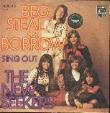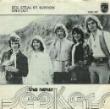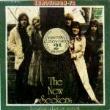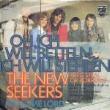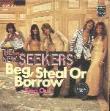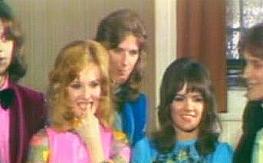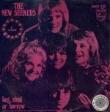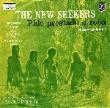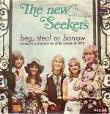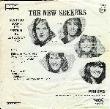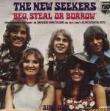PETER DOYLE
WEBSITE
See
External Links above for a few Eurovision Website Links |
ABOUT EUROVISION The Eurovision song Contest started in 1956 and has the stated mission: “to stimulate the output of original high-quality songs in the field of popular music by encouraging competition between authors and composers through the international comparison of their work”. It is open to countries who are members of the European Broadcast Union which includes some countries not usually seen to be part of Europe. Only seven countries took part in the first contest but over the years the figures have grown and there were twenty six countries competing in 2003 and it has been decided to include a qualifying round from 2004. Nowadays the audiences from most participating countries are invited to vote by telephone but originally judges were appointed from each country to give their votes on the songs and the actual points system has changed as time has gone on. The contest is taken much more seriously by some than by others and whilst it is officially the song which is important it has provided many performers with an opportunity to develop their international career. It has long been fashionable to knock Eurovision but it has continued to grow from strength to strength and is now recording viewing figures of well over one hundred million around the world.
THE NEW SEEKERS AND THE EUROVISION SONG CONTEST It is a stipulation of the contest that the entries should be chosen from a national competition. In the UK in the early 70s all the entries were performed by the same artist over a number of shows usually presented by a well-known entertainer. The New Seekers were chosen as the artists in 1972, the first time a group had represented the UK and they performed the songs on The Cliff Richard Show. Cliff Richard had already sung in the Eurovision Contest in 1968 and was to represent the UK again in 1973.
In addition to singing the six songs the group took a larger part in the show, singing other numbers and joining in comedy sketches. Following on from the roaring success of I'd Like To Teach The World To Sing this gave the group some regular national TV coverage and triggered their massive fan-following, dubbed by the press as "Seeker Fever".
“The Cliff Richard Shows helped a lot, obviously”, Lyn Paul commented in a later interview, “because it's watched by young people and it got so that they would watch because our boys do have a large fan following, I think that was the beginning of it.”
On the final show, broadcast on 12th February, 1972 the New Seekers sang all of the short-listed entries and the country voted by post for their favourite.
Beg, Steal or Borrow was an easy winner, scoring more than twice as many votes as the song which came second:
It was released as a single with the runner up, One By One on the other side. The group also released a German version: Ich Will Betteln, Ich Will Stehlen, on a single, backed by one of Peter Doyle's compositions: All six entries were released on to albums in the UK. Beg, Steal or Borrow, One By One and Songs of Praise were released on We'd Like To Teach the World To Sing and the remaining three: Out on the Edge of Beyond, Why Can't We All Get Together? and Sing Out all appeared on the Look What They've Done to My Song Ma, album.
THE 17TH EUROVISION SONG CONTEST, 1972
Traditionally the Eurovision Song Contest has been hosted by the country with the winning entry in the previous year but the 1971 winner, Monaco, did not have a suitable venue. It was decided instead to hold the contest in the UK at the Usher Hall in Edinburgh. Eighteen countries took part in front of an estimated world-wide audience of forty three million on 25th March.
The New Seekers were the fifth act to sing and their musical director, David Mackay conducted the orchestra for the performance, In an interview sometime later, Peter was asked how he felt on the night: "A little bit detached if anything, because at the best of times I'm edgy and I made up my mind that whatever happens will happen and it worked out. I was a little nervous in front of fifty million people." Hardly surprising, but in spite of the nerves, Peter gave a very credible performance as he lead the group into their song in which he shared the lead with Lyn.
On this occasion, the judges were all gathered in Edinburgh. There were two judges from each country, one over and one under the age of twenty five. Each judge awarded points on a rising scale of merit from 1 - 5 for every country except their own.
Whilst the votes were counted the radio audience were treated to a short interview with the New Seekers. They commented on the general high standard of the entries and Peter picked out the eventual winner, Luxembourg when asked who was likely to be particularly strong competition.
As the votes came in from each country it was obvious that the New Seekers would do well and when the final results were counted, they had secured themselves a good second place:
Winning isn't everything at Eurovision and the New Seekers' song proved to be another hit for them in various countries and strengthened their international standing. In concerts afterwards Eve Graham would regularly introduce Beg, Steal or Borrow, as a song: “which did quite well for us, even though it didn't win a certain contest!”
The New Seekers Eurovision song is now available on DVD. Twenty four Eurovision songs from the hundreds of entries over the years have been put together on one collection. It includes both Beg, Steal or Borrow and the song which beat it into second place: Apres Toi. It is also possible to obtain a copy of the 1972 Eurovision Song Contest on DVD. More details here.
|
Page CreatedJune 2003
Updated
24.05.2011
Copyright © G. Taylor 2002 - 2021
